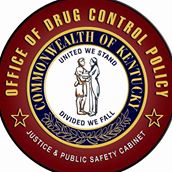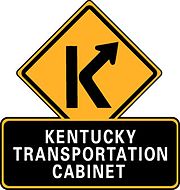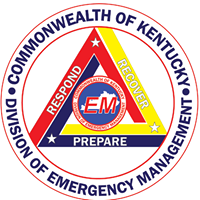 The nationwide opioid epidemic continued taking its lethal toll on the Commonwealth last year, driving up overdose deaths to unprecedented levels with an ever-stronger mix of fentanyl, heroin and prescription pills.
The nationwide opioid epidemic continued taking its lethal toll on the Commonwealth last year, driving up overdose deaths to unprecedented levels with an ever-stronger mix of fentanyl, heroin and prescription pills.
According to a report released by the Kentucky Office of Drug Control Policy, fatal overdoses totaled 1,404 in 2016, a 7.4 percent increase from the previous year. Of those cases, toxicology data was available for 1,330 deaths.
Fentanyl, an extremely potent opioid that is often blended with heroin and other drugs, contributed to nearly half of all fatalities during the year. It was a factor in 623 lethal overdoses, up from 459 in 2015. Heroin was involved in 456 deaths.
“Nearly every community in Kentucky experienced a fatal drug overdose last year— if that’s not a wake-up call, I don’t know what is,” said Gov. Matt Bevin. “We don’t have the luxury of pretending there isn’t a massive problem. The consequences of the opioid crisis are far-reaching, affecting every corner of our communities. We must stand united against the opioid scourge and work together to find solutions. Failure is not an option.”
The numbers are part of the 2016 Overdose Fatality Report, which was compiled with data from the Kentucky Medical Examiner’s Office, the Kentucky Injury Prevention & Research Center and the Kentucky Office of Vital Statistics. A copy of the full report is available here.
It shows that Louisville, Lexington and Northern Kentucky experienced the highest number of lethal overdoses, but nearly every community suffered fatalities. Leslie County had the highest number of deaths on a per capita basis, followed by Bell, Powell, Gallatin and Campbell counties.
Those most likely to lose their lives to a drug overdose were people between the ages of 35 and 44. More than 400 in that age group died in 2016.
“These are mothers and fathers, veterans, co-workers and friends,” said Kentucky Justice Secretary John Tilley. “We are in a daily battle to reach them before we lose them, and we must continue tapping every available resource to confront this problem with both force and compassion.”
Fentanyl, a Schedule II narcotic, began overtaking heroin in 2015 as the leading contributor to overdose deaths in Kentucky. The drug is 30 to 50 times more potent than heroin and can prove deadly at very low levels, according to the U.S. Drug Enforcement Administration (DEA).
At the same time, illicit drug cartels have been producing newer and more potent fentanyl analogues, which further increases the risk of death. Carfentanil, for instance, is approximately 100 times more potent than fentanyl, the DEA reports.
Van Ingram, executive director for the Kentucky Office of Drug Control Policy, said fentanyl is frequently mixed with heroin or pressed into a pill form, leaving many users unaware that they are ingesting the drug. That has escalated an already deadly crisis of opioid abuse that started more than a decade ago with prescription painkillers.
“Fentanyl’s impact is really unprecedented,” Ingram said. “Users have no way of knowing what drugs they are taking, and even the smallest amounts can trigger a lethal reaction. We’ve seen cases where a bad batch of drugs has led to dozens of overdoses in a single community overnight.”
Naloxone, a lifesaving antidote that can reverse an opioid overdose, is now widely available in many Kentucky communities; however, it is not always effective against fentanyl, Ingram said. Emergency responders are seeing cases that require several doses of naloxone to revive the victim.
“Government, healthcare, law enforcement – we are all working furiously to save lives,” Ingram said. “But even the best policies and medications have limits. That’s why it is critical that we continue taking a multi-faceted approach, and every Kentuckian can help by spreading the word about the dangers of these drugs.”
Kentucky is a national leader in drug control policy, and the Bevin Administration has worked with the Kentucky General Assembly over the past two years to ramp up the fight against opioids.
This year, the legislature passed House Bill 333, which gives the state flexibility to schedule new fentanyl analogues as they arrive on the streets. It also limits opioid prescriptions for acute pain to a three-day supply unless a doctor provides written justification in medical records for a larger amount.
In 2016, Gov. Bevin and the General Assembly also increased funding for anti-drug efforts in the state budget, allocating $15.7 million to combat opioids in the current fiscal year, up from $10 million the previous year. Another $16.3 million has been allocated for fiscal year 2018.
Among other significant findings in today’s report:
• Jefferson County had the most overdose deaths of any county with 364, up from 268 in the 2015 report. It also had the largest year-to-year increase in overdose fatalities.
• The largest decrease occurred in Kenton County, which had 22 fewer fatalities in 2016 compared to the previous year. Other counties with significant declines include Bell County, which declined by 10, and Knox County, which declined by 8.
The top five counties for heroin-related overdose deaths, using data from the Kentucky Medical Examiner and coroner reports, were:
- Jefferson County – 122
- Fayette County – 48
- Kenton County – 20
- Campbell County – 17
- Boone County – 12
The top five counties for overdose deaths by county, per capita, were:
- Leslie County – 66.25
- Bell County – 58.53
- Powell County – 56.51
- Gallatin County – 56.19
- Campbell County – 52.05
The top five counties for fentanyl-related deaths were:
- Jefferson County – 182
- Fayette County – 59
- Kenton County – 26
- Boone County – 25
- Campbell County – 21
The top five counties for deaths related to heroin and fentanyl in combination were:
- Jefferson County – 59
- Campbell County – 21
- Fayette County – 20
- Boone County – 12
- Kenton County – 11
 Beginning today, the Commonwealth of Kentucky takes its first official step toward tort reform, initiating a new program to review claims of malpractice against healthcare providers before any legal action can be filed in court.
Beginning today, the Commonwealth of Kentucky takes its first official step toward tort reform, initiating a new program to review claims of malpractice against healthcare providers before any legal action can be filed in court.
The 2017 Kentucky General Assembly passed Senate Bill 4 establishing Medical Review Panels (MRPs) to help weed out unfounded or frivolous medical malpractice lawsuits. Governor Matt Bevin enthusiastically endorsed the bill and signed the legislation into law.
“Making sure patients can pursue legal action in the event of medical malpractice is an important part of securing justice for those harmed by the healthcare system. However, it is equally important that providers be protected from frivolous or unfair claims,” said CHFS Deputy Secretary Judge Timothy Feeley. “MRPs will ensure there is an adequate basis for civil action before a case is pursued in court.”
Any person alleging malpractice against a healthcare provider or institution must first bring a “proposed complaint” to the Medical Review Panels Branch within the Cabinet for Health and Family Services (CHFS), before filing the claim in a Kentucky court. The MRPs will serve as a pre-cursor to filing a medical malpractice action in court and will be staffed by an attorney and three Kentucky-licensed healthcare providers to provide a peer-reviewed assessment of each case. Healthcare providers included in the statute are broadly defined. They include, but are not limited to, physicians, dentists, pharmacists, social workers and nursing homes.
“Medical Review Panels are a small step toward stemming the flow of medical practitioners out of our state,” said the bill’s sponsor, Sen. Ralph Alvarado, in a press release. “The lack of healthcare providers in our Commonwealth can be largely attributed to the litigious-friendly climate in which we have found ourselves in recent years due to the absence of tort reform.”
No matter the outcome of the opinion, the plaintiff retains a right to pursue a medical malpractice claim in a court of competent jurisdiction after the final MRP opinion is rendered. If the plaintiff chooses to file a civil complaint following the MRP review, either party may move the trial court to admit the MRP opinion as evidence in the same manner a party would move to admit the testimony of an expert witness.
For more information on the MRP process, go to: mpr.ky.gov or contact the Medical Review Panel Branch at CHFS via email at mrp@ky.gov.
 The Kentucky Transportation Cabinet (KYTC) today released a data-driven list of statewide transportation projects that will help guide development of the next Highway Plan.
The Kentucky Transportation Cabinet (KYTC) today released a data-driven list of statewide transportation projects that will help guide development of the next Highway Plan.
Over the past several months, KYTC evaluated and scored more than 1,100 projects across the state using the new Strategic Highway Investment Formula for Tomorrow (SHIFT). The formula is an objective approach that uses data on safety, congestion, asset management, economic growth and cost-benefit ratios.
At the direction of Gov. Matt Bevin, state transportation leaders created SHIFT as a data-driven tool to help prioritize spending of limited transportation dollars, estimated at $2.6 billion over the next six year cycle (FY 2018-FY 2024) based on current funding sources. Kentucky’s current six-year Highway Plan has nearly $6 billion in unfunded transportation projects.
“With limited dollars to spend, we must make wise investments that improve safety for our citizens, increase mobility and drive the state’s economy,” said Transportation Sec. Greg Thomas. “SHIFT is a tool to help us propose a prioritized and balanced Highway Plan to present to the governor and lawmakers.”
The first step in narrowing funding priorities was to identify and rank projects with statewide significance – interstates and highways that move people and goods from one Kentucky region to another and to other states.
The statewide list identifies 70 projects, which are part of the National Highway System, as projects of statewide significance. These projects will be considered for funding through a statewide funding pool, which will be designated in the recommended Highway Plan later this year.
The next step in the SHIFT process will focus on ranking regional projects, transportation improvements within geographical sections of the Commonwealth.
Over the coming weeks, local transportation leaders (Area Development Districts, Metropolitan Planning Organizations and KYTC District Offices) across the state will meet to decide which projects to prioritize for consideration for Highway Plan funding. The groups will consider more than 1,000 projects that have been scored using SHIFT including those National Highway System projects that were determined not to have statewide significance.
KYTC has grouped the state’s 12 highway districts into four geographic regions – North, South, East and West – consisting of three districts each. Leaders in each region will be asked to prioritize spending on projects in their areas.
Greater Commitment to Repair Existing Roads, Bridges
Thomas also announced yesterday that the recommended Highway Plan will set aside an additional $205 million annually in the next highway plan to repair or replace aging bridges and roads across the Commonwealth.
Kentucky has more than 1,100 structurally deficient bridges and more than 3,700 miles of roads that need significant repairs. The backlog of pavement improvements alone totals approximately $1 billion and is growing at a rate of 500 miles of roadway each year.
“We must take better care of the roads and bridges that motorists depend on today,” Thomas said. “The backlog of deteriorating infrastructure is significant and we must invest more resources to preserve our existing system.”
Later this fall, the statewide and regional lists developed under SHIFT scoring will guide development of the Highway Plan, a six-year outline for transportation spending. The plan will also include funding for priorities outside of SHIFT, including projects already underway and federally designated programs such as the Transportation Alternative Program and the Congestion Mitigation Air Quality program funded through the Office of Local Programs.
For more information about SHIFT and to view the statewide projects list, visit http://transportation.ky.gov/SHIFT.

Photo: NCSLA
Kentucky was front-and-center at last week’s National Conference of State Liquor Administrators (NCSLA) meeting in Denver, when the Commonwealth was selected to host the group’s 2019 annual conference.
Kentucky beat Kansas to host the conference, which is expected to bring approximately 500 visitors to the state for four days. Department of Alcoholic Beverage Control (ABC) Commissioner Christine Trout represented Kentucky and highlighted the numerous attractions and amenities the state has to offer for conference attendees.
“Kentucky ABC looks forward to welcoming our fellow state regulators from across the country to Kentucky for four days of meetings, training, and sightseeing,” said Commissioner Trout. “The annual conference agenda always covers diverse and timely issues, and we look forward to placing Kentucky at the center of the discussion.”
Kentucky is already slated to host the NCSLA Northern-Southern Regional Conference later this year in Louisville. Approximately 250 regulators from neighboring states will attend the conference, which will focus on Kentucky’s alcoholic beverage producers and the state’s Red Tape Reduction Initiative.
Commissioner Trout will serve as the vice chair of the NCSLA Southern Region during the conference and will be responsible for assisting the chair with overseeing regional activities during the next year. She was elected to the position by NCSLA members during the Denver meeting and will become chair in 2018.
“I am honored to serve in this leadership position and look forward to sharing my knowledge of state government processes and regulatory compliance with leaders from neighboring states,” said Commissioner Trout. “Kentucky is on the forefront of many important alcoholic beverage issues, and I am excited to tell our story.”
NCSLA’s primary goal is to create and maintain effective systems of alcohol regulation for the public interest. The group promotes effective alcohol policies in local communities and educates members on regulatory compliance.
To learn more about NCSLA, visit http://ncsla.org/. For additional information about ABC, visit http://abc.ky.gov/Pages/index.aspx.
 Kentucky Emergency Management (KYEM) remains activated at Level 4 in support of Tropical Storm Cindy as it moves through Kentucky. Level 4 operations consist of KYEM staff monitoring and gathering information on the storm as it moves across Kentucky.
Kentucky Emergency Management (KYEM) remains activated at Level 4 in support of Tropical Storm Cindy as it moves through Kentucky. Level 4 operations consist of KYEM staff monitoring and gathering information on the storm as it moves across Kentucky.
Officials are urging our citizens to be prepared and aware of their surroundings as the rain increases throughout the day and overnight. Following are some safety tips for flooding:
Flooding Water:
Never enter flood waters by foot or vehicle. A vehicle caught in swiftly moving water can be swept away in a matter of seconds. Twelve inches of water can float a car or small SUV and 18 inches of water can carry away large vehicles.
Do not go into a basement or any room, if water covers the electrical outlets or if cords are submerged. If you see sparks or hear buzzing, crackling, snapping or popping noises — get out!
Power Outages:
If electrical power lines are down, don’t touch them. Keep your family and pets away. Report downed lines to your utility company.
Do not use a generator inside your home. Make sure it is outside and ventilated as required by manufacturer instructions. Make sure you have a carbon monoxide detector in your home.
Tetanus:
Avoid contact with flood waters. Flood waters are unclean and can be a risk for tetanus for those who have open wounds that come into direct contact with them. Contact your regular health care provider or your local health department if you believe you may need a tetanus shot.
Mold Cleanup:
Mold may be present in homes that were flooded. An air conditioner or dehumidifier may be used to lower the level of humidity to prevent mold growth. Use exhaust fans when showering and cooking.
When cleaning up small areas affected by mold, make sure the area has enough air by opening doors or windows. Use protective glasses or goggles, rubber boots and waterproof gloves. Wash clothing afterwards. If there is heavy mold growth, use a respirator or suitable mask to prevent breathing the mold.
Remove all wet items that have been wet for more than 48 hours and are not able to be cleaned and dried.
If mold is growing in your home, you will need to clean up the mold and fix the moisture problem. Mold growth can be removed from hard surfaces with commercial products, soap and water, or a bleach solution of no more than 1 cup of bleach in 1 gallon of water. Severe mold cases may require an expert to clean up.
Food Safety:
If you have power outages, keep freezers closed to help keep frozen food from going bad. A full freezer will keep the temperature for about 48 hours and for 24 hours if the freezer is half full.
Refrigerated foods should be safe as long as power is out for no more than four hours. Throw away any perishable food in your refrigerator, such as meat, poultry, lunchmeats, fish, dairy products, eggs and any prepared or cooked foods that have been above 40 degrees Fahrenheit for two hours.
Fresh fruits and vegetables are safe as long as they are still firm and have no mold or slimy feel.
To remove spills and refresh the freezer and refrigerator, DPH recommends washing with a solution of 2 tablespoons of baking soda dissolved in 1 quart of warm water. To get rid of any odors, place an open box or dish of baking soda in the freezer or refrigerator.
For more flooding preparedness information, go to http://Healthalerts.ky.gov or http://www.floodsafety.noaa.gov. Also, visit www.kyem.ky.gov where you can follow KYEM on Twitter and like us on Facebook.
When posting on social media regarding the rain event, please use #KYWX.
 Gov. Matt Bevin and Kentucky Labor Sec. Derrick Ramsey today filed a motion to dismiss the purely political, frivolous lawsuit brought by the AFL-CIO and Teamsters challenging Kentucky’s Right-to-Work Act. This lawsuit threatens to hurt Kentucky’s families, robbing them of high-paying job opportunities. The historic new law protects employees in the Commonwealth from being forced to pay union dues in order to keep their jobs.
Gov. Matt Bevin and Kentucky Labor Sec. Derrick Ramsey today filed a motion to dismiss the purely political, frivolous lawsuit brought by the AFL-CIO and Teamsters challenging Kentucky’s Right-to-Work Act. This lawsuit threatens to hurt Kentucky’s families, robbing them of high-paying job opportunities. The historic new law protects employees in the Commonwealth from being forced to pay union dues in order to keep their jobs.
“Companies like Braidy Industries made it clear from the beginning that right-to-work laws are a major factor in deciding to locate to Kentucky,” said Amanda Stamper, Communications Director. “What purpose does this lawsuit serve, except to hurt working families that are depending on these jobs? This ridiculous legal action by the AFL-CIO and Teamsters will not quell the momentum building across the state. Kentucky is winning, and this will not slow us down.”
In the motion, Gov. Bevin and Sec. Ramsey fight to protect employees from being forced to pay their hard-earned money to unions. Exactly 70 years ago today, with the enactment of the Taft-Hartley Act, Congress authorized states to enact Right-to-Work laws and Kentucky’s decision to do so is a constitutional exercise of the state’s authority.
The legislature’s adoption of Right-to-Work and other pro-growth policies has already borne fruit in the form of $6.7 billion in new investments and the promise of thousands of new jobs in the Commonwealth in just the first six months of the year, including a $1.3 billion investment in the Ashland area that will create hundreds of high-paying jobs.
The majority of Kentucky’s border states—Indiana, Missouri, Tennessee, Virginia and West Virginia—have also enacted right-to-work legislation.
Studies examining Bureau of Labor Statistics (BLS) data show that right-to-work states report faster per capita income growth, greater capital expenditures, lower unemployment, fewer work stoppages and faster growth in manufacturing and non-agricultural jobs than non-right-to-work states.
Contrary to critics who claim that right-to-work protections eliminate opportunities to affiliate with a union, 2015 BLS data also shows that union membership in right-to-work states actually grew more quickly than in non-right-to-work states.
Click here for copy of motion to dismiss.

Photo: Secretary of State website
Secretary of State Alison Lundergan Grimes on Monday joined members of the Tri Ân Foundation to break ground for a new monument honoring Vietnamese and American veterans.
“Tri Ân in Vietnamese translates to ‘deep gratitude’, a feeling we all share when it comes to all people who sacrifice for the betterment and protection of their brothers and sisters,” said Grimes. “Millions of Americans and Vietnamese veterans fought side-by-side to win a heroic battle against communist aggression in Vietnam. We are forever grateful.”
The monument, located at Louisville’s Veterans Memorial Park, is an homage to the display of heroism during the Vietnam War. The design of eight bamboo-formed concrete columns representing the eight anti-communist allies that worked together toward freedom for the Vietnamese people – South Vietnam, the United States, Australia, Thailand, South Korea, New Zealand, Republic of China (Taiwan), and the Philippines. The monument will also have a digital component to connect veterans with fellow comrades and learn the destiny of rescued refugees. Families of the fallen will learn new stories and insights behind their loved one’s sacrifice.
“The Tri Ân Foundation is so appreciative of the generosity of so many who understand how important it is we recognize the gratitude of the Vietnamese people for those who helped secure their freedom,” said Yung Nguyen, founder of the foundation. “This monument will be a testament to their sacrifice and help all gain a deeper insight to an important part of world history.”
Grimes is deeply committed to honoring the service of veterans, and she is passionate about supporting Kentucky’s active-duty military members and their families. As Secretary of State, Grimes has advocated on their behalf in a range of issues from voting to business creation to job opportunities. She also played an integral role in the creation of the Kentucky Veterans Hall of Fame.
More information about the Tri Ân Monument and Foundation is available at tri-ancompetition.com.
 Weather
Weather Traffic
Traffic @LouisvilleDispatch
@LouisvilleDispatch @LouisvilleDisp
@LouisvilleDisp Subscribe
Subscribe